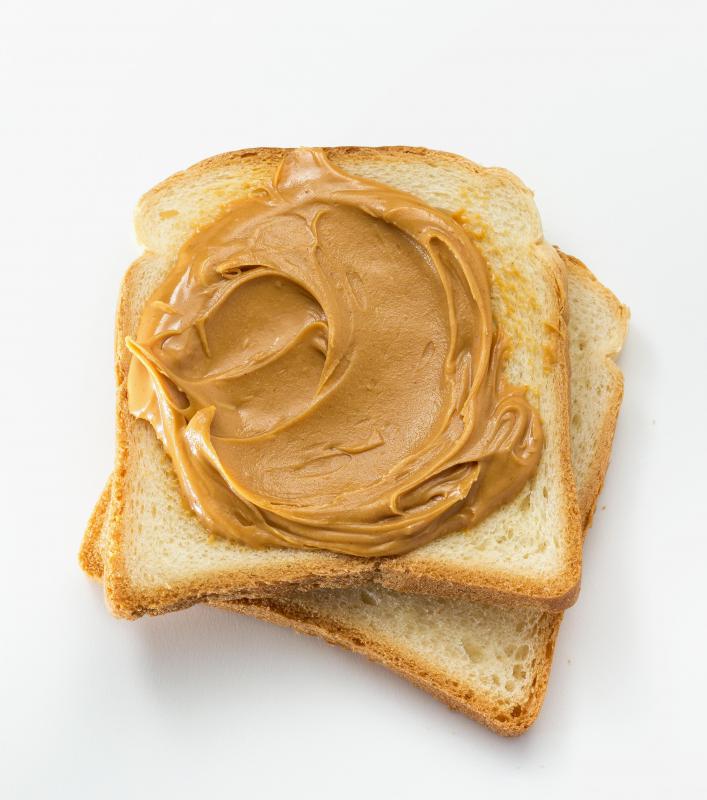At DelightedCooking, we're committed to delivering accurate, trustworthy information. Our expert-authored content is rigorously fact-checked and sourced from credible authorities. Discover how we uphold the highest standards in providing you with reliable knowledge.
What Is Sunflower Butter?
Sunflower butter is a seed-based spread similar in texture and appearance to peanut butter. First commercially developed in the 1980s, sunflower butter took considerable refinement before truly becoming a marketable product. The nutritional content of the butter is often touted, as it is considered a good source of protein and unsaturated fat. The spread, which is now widely available in grocery stores and through online merchants, can be used in sandwiches, desserts, and can serve as a substitute for nut butter in nearly any recipe.
Made by roasting and mashing the small seeds of the sunflower, this alternative butter went through many versions before reaching a consumer-pleasing level. Early attempts at commercial sunflower butter were often considered too thick to spread, too salty, and sometimes had an unsavory green hue. The United States Department of Agriculture partnered with manufacturers in the late 20th century to help improve the consistency and appearance of the product, since the butter took excellent advantage of a native and plentiful crop, as well as providing a viable food staple alternative for allergy sufferers. Modern roasting and manufacturing techniques have created a more spreadable and appealing basic product that can be customized to suit many different tastes.

In terms of nutrition, sunflower spread is comparable to peanut or almond butter in many ways. Some versions of the spread are higher in protein and iron than peanut butter, while providing less saturated fat. Sunflowers are naturally high in vitamin E, and also contain a significant amount of fiber. Like peanut butter, sunflower butter can pack quite a few calories into a small serving. While a small amount of the spread may be a good way to boost protein intake, eating too much can add excess calories and fat to a diet.

Sunflower butter can be a great way for nut-allergy sufferers to enjoy many foods formerly forbidden. In addition to sunflower and jelly sandwiches, or sunflower and banana snacks, the butter can work very well in variations on traditional peanut butter desserts, such as sunflower butter cookies. Some chefs note that adding baking soda to sunflower butter can turn the finished product green; using baking powder-based recipes may allow for more attractive results.
While sunflower spread is available in grocery stores, it is also possible to make a batch at home. Fresh butter can be made by combining pre-roasted and hulled sunflower seeds in the blender with vegetable oil, a shake of salt, and a sprinkle of sugar. Ingredient amounts can be increased or decreased to suit individual taste, and sunflower seeds can also be purchased raw and oven-roasted at home just before blending. Homemade sunflower spread should be refrigerated and used within a few days.
AS FEATURED ON:
AS FEATURED ON:












Discussion Comments
@ocelot60- I think if you make your own sunflower butter at home, you shouldn't expect it to be very creamy. I have tried making other types of butters, and they always turn out with a grainy texture.
I think you should try to find commercially made sunflower butter if you really want to experience the kind with good flavor and creamy texture. If you can't find it locally, you should try shopping at the closest natural food store. You can also shop for it online, because a lot of online food shops carry unique food items such as this.
The article talks about how the creation of good sunflower butter took some time and effort, but concludes by giving instructions on making it at home. Has anyone every tried making sunflower butter, and if so, is it really that easy to make? I would like to try it, but I can't find it for sale in stores in my area.
Post your comments